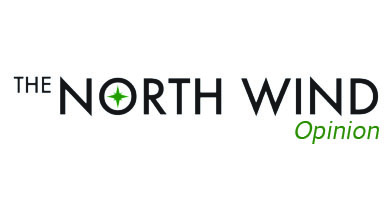Even though the first vote in the 2018 race for Michigan governor won’t be cast for another 13 months, candidates have already taken to the campaign trail statewide. Among them is Abdul El-Sayed, whose hand I shook twice when he visited campus last week.
Before our initial interaction, I was skeptical of the democratic candidate for governor because his focus on the “power of the people” seemed to harmonize more with third-party philosophies than with democratic party ideologies.
After El-Sayed’s town hall talk, and our final contact, I was leaning toward support because of his pledges to reform educational, environmental and economic policies as governor. Yet, even now, as his campaign gains momentum and the “Abdul For Michigan” sticker on my laptop shows its first signs of wear, I’m apprehensive about an absolute endorsement of El-Sayed.
What holds me back isn’t his young age, nor his religious identity, but the amiable aesthetic that surrounds his platform. Portraying an image of the neighborly “nice guy,” whether genuine or rehearsed, is necessary for any candidate to make meaningful impressions on voters. But, there can be a point in which amicability becomes synonymous with ambiguity.
El-Sayed assumed the role of personable politician in both of our palm-to-palm embraces—he addressed me as “Friend,” introduced himself by his first name and squeezed my ballot-casting hand with a grip that suggested our bro ship was contingent on my vote.
I wasn’t surprised that the candidate whose first name centered slogan came off as genuine, but, the content of his speech was uncharacteristically generic. Claims saturated by “we need to,” “our future” and “they” complimented undetailed promises of reform, and ultimately left me thinking, “I agree with your call to action, but what’s the plan, Abdul?”
El-Sayed is clearly cognizant of local and state issues, but his pledges walk a fine line between ideology and initiative.
Perhaps it’s too soon in the race for El-Sayed to be specific—the Michigan primary doesn’t take place until August 2018—but, the wide-open race is one in which candidate transparency guarantees the nomination.
Considering two consecutive terms rooted by political beguilement, controversy and callousness, filling Governor Snyder’s shoes with any one of the 12 candidates that have filed would be appealing to voters.
However, electing a democratic governor would dismantle the republican trifecta and empower the democratic minority in the state senate and the state house.
Although El-Sayed may not be the superior candidate, he does seem to be what the party needs from each of its four candidates: marketability.El-Sayed’s experience and effectiveness in public service as Detroit’s Health Commissioner are credible enough to justify his nomination, but, the potentiality of El-Sayed as the nation’s first Muslim governor may be enough to secure it.
El-Sayed isn’t just campaigning for the vote of the party, but for the people’s. His non-political action committee funded campaign has courted progressive voters within the party, and he has prospective to amend Michigan’s socio-political and economic limitations.
Yet, democrats, myself included, can’t help but fear that El-Sayed won’t get the nomination in the gubernatorial election. We’ve seen this before with a progressive candidate, most recently in a presidential election—Bernie Sanders was the prodigal candidate, but he floundered in our red ranked state to be nominated.
I agree with El-Sayed that “We’ve got to dignify the people’s lives in this state,” and my signature on the petition to get him on the primary ballot legitimized his candidacy.
For El-Sayed to transcend the limitations of the party, and defy the republican trifecta, however, he needs to step out from behind the congenial curtain. Emphasizing the particulars of policy and detailing the plan, instead of the man, may result in nomination.


























